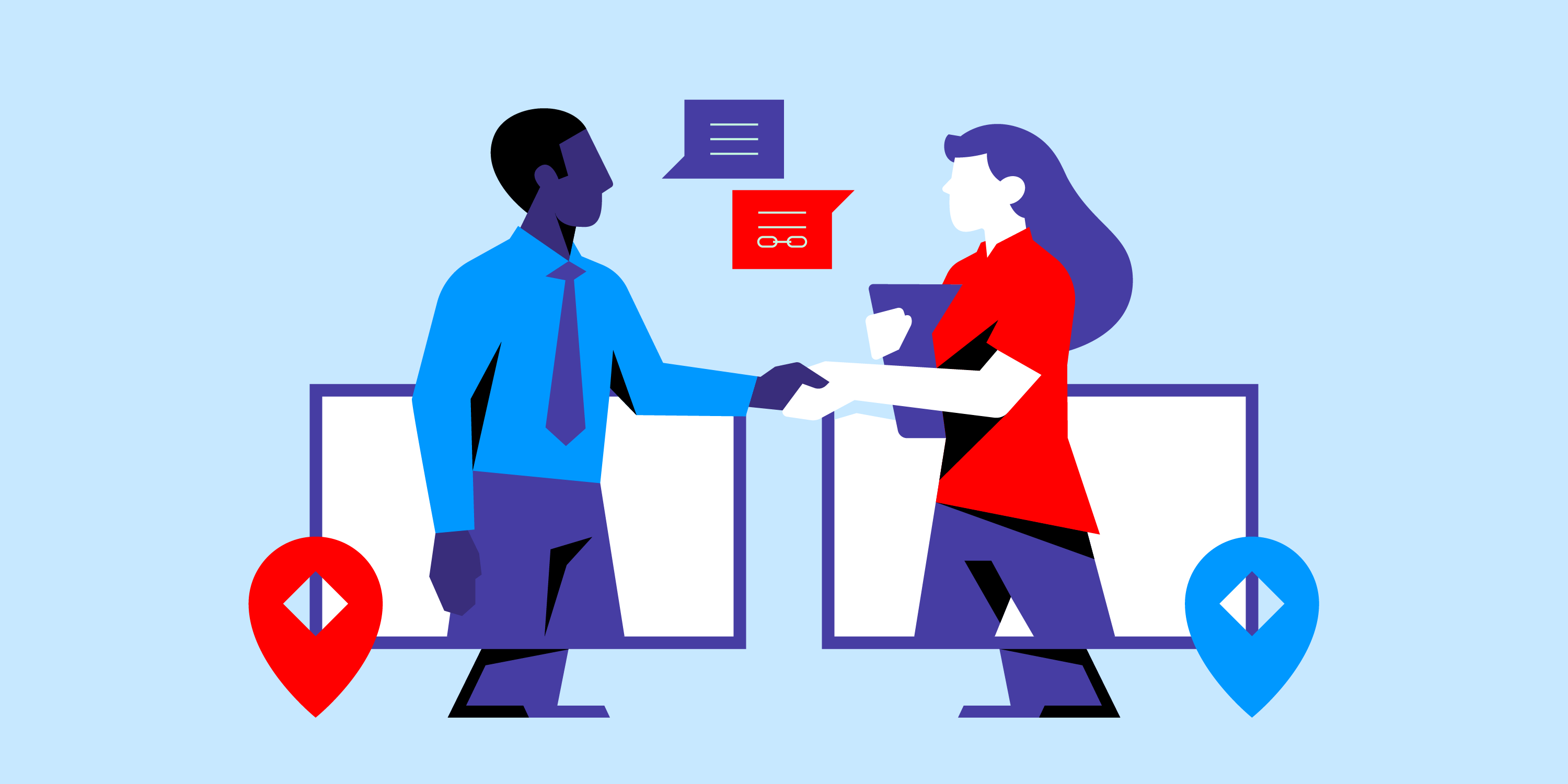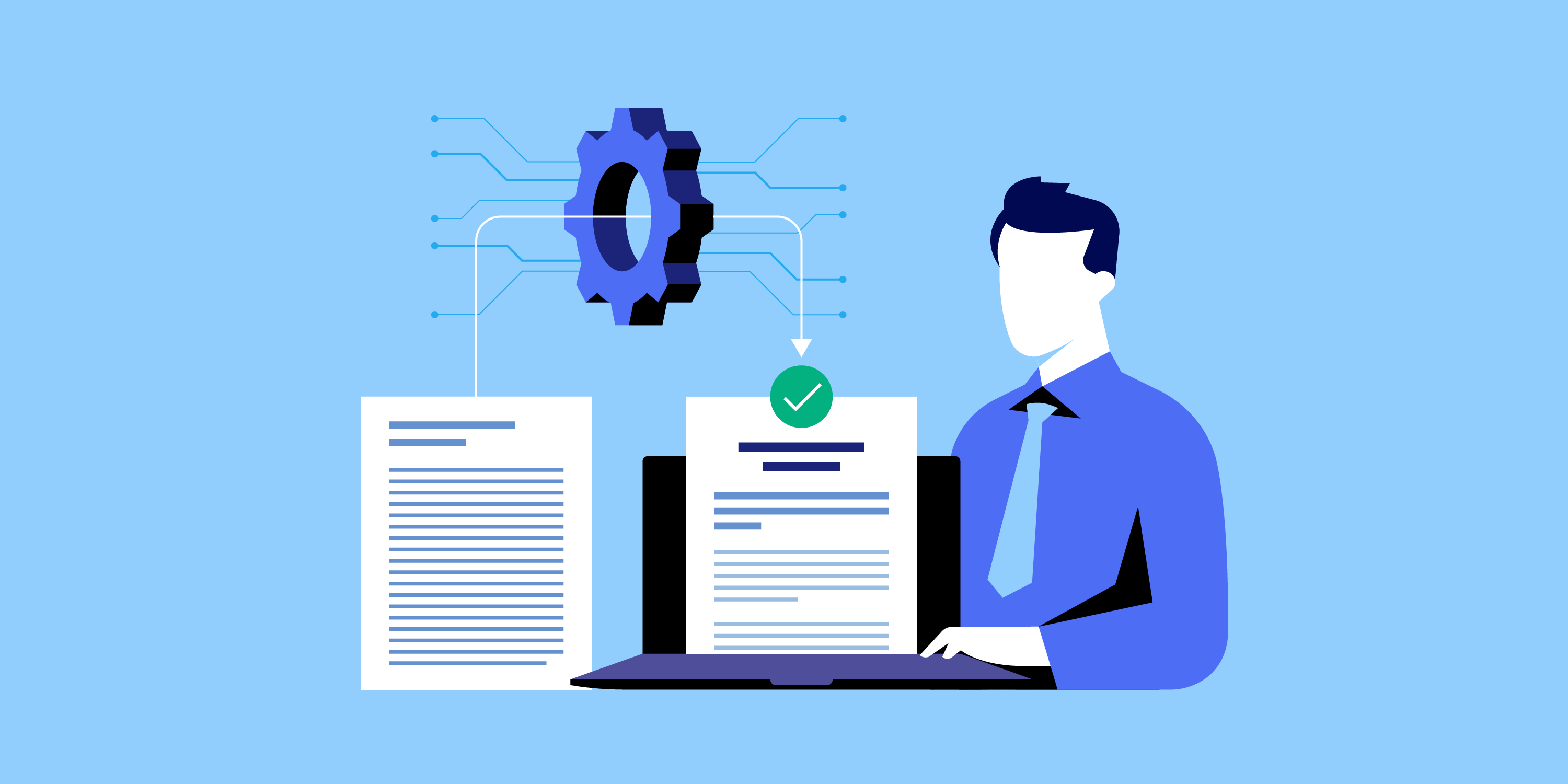How Expensify’s Asynchronous Work Model Helps the Company Attract Long-term Talent

Adele Kennedy, People Operations Generalist at Expensify, is a member of the company’s recruiting and hiring team. She previously worked in talent acquisition at 52 Limited and Motus Recruiting and Staffing, Inc.
The average tenure of an Expensify employee is five years and growing. People Operations Generalist Adele Kennedy shares the secrets behind the company’s talent acquisition success.
At Expensify, our employees stick around. We’re a team of about 140, so we’re relatively small for a software-as-a-service company. That means our recruiting efforts are highly selective, with a major focus on retention rates. We identify talent through three key attributes: talent, humility, and ambition—all of which determine if someone will succeed in our asynchronous environment long term.
This method has proven extremely successful for us. The average tenure of an Expensify employee is five years and still going up. Our success in this area is fantastic for the company, considering that replacing an employee can cost up to two times the amount of their salary in lost productivity and recruiting efforts. Turnover costs US businesses roughly $1 trillion every year.
As a people operations generalist at Expensify, I’ve found that our asynchronous structure benefits the recruiting experience all around and makes it easier to attract top talent. Here’s how.
The Benefits of Asynchronous Work
These days, most employees have at least some experience with remote work due to the COVID-19 pandemic, and many are looking for continued flexibility. More than half of American workers have the option to work remotely for all or part of the week, according to a 2022 McKinsey & Company survey. The survey also found that a flexible working arrangement is the third most popular motivator for finding a new job, after better pay/more hours and career advancement opportunities.
Asynchronous work takes that flexibility one step further. It means that not only can you work from home, but your team is not required to work the same business hours. Asynchronous work has been a part of Expensify’s ethos since the company was founded in 2008. Just as our expense-reporting app helps businesses handle receipts and expenses across different operating systems, our team works across time zones in more than 15 countries.
As a team member, I’ve seen enormous benefits in the asynchronous work model, namely:
- Greater satisfaction with work. The work-life balance that comes with an asynchronous schedule—whether that’s taking a break in the middle of the day to run an errand, or working when you are most productive—means that you log in with a more positive attitude and work ethic.
- Unique opportunities to connect. Because our employees don’t have to adhere to a strict 9-to-5 schedule in their respective time zones, we have the unique opportunity to hire and interact with talent all over the world. For instance, I’m in the Pacific Northwest of the United States and sometimes prefer to work evenings. Say I’m online at the same time as a developer in the Southern Hemisphere—at a non-asynchronous company, I might never interact with this person. But since it’s daytime for him, I can catch him on his lunch break and ask about a project he’s working on that I’m interested in learning more about. In an asynchronous workplace, these connections are common and expand not only our knowledge of the business, but our worldview as well.
- Higher productivity. Asynchronous schedules make it easier to work under different circumstances, such as when you’re traveling or have moments of heavier responsibilities at home. When you’re able to make your own schedule and find a system that works best for you as an individual, you’re naturally more productive. We’ve also found that the longer an employee works for us, the more productive they become—not because they’re putting in more work, but because of the versatility of their skill set. They’re able to learn more about the company as a whole in an asynchronous workplace where everything is documented and accessible across functions.
Some recruiters at companies offering job flexibility might worry that candidates are only interested in those perks, and not in the work itself. But with so many companies working asynchronously now, that aspect doesn’t really concern me. Instead, I like to ask prospective hires questions like, “Why us and not them?” or “How will an async environment lead to more satisfaction at your work?” The answer to those questions can help identify candidates who align with our company structure.

Buffer’s 2022 State of Remote Work report surveyed 2,118 remote workers from 16 different countries.
Which Candidates Succeed at Asynchronous Work?
As I mentioned before, recruiters at Expensify use three attributes—talent, humility, and ambition—to help us identify people who will both enjoy the work they do and thrive in an independent, remote environment.
Talent
We define talent as the ability to learn without being directly taught. Because Expensify is a flat organization, nobody has a manager to report to, which makes asynchronous work easier. Every employee has ultimate freedom over their schedule and how they choose to work, which is attractive to the candidates we recruit.
In addition, we communicate to candidates that they have the ability to move within the company once hired. Operating alone requires a natural aptitude for picking things up without being directly coached. I look for candidates who seek answers for themselves and are committed to teaching themselves new skills based on the materials we make available to them.
Humility
Everybody here has a voice, but for us, humility is about being able to come to an agreement and decide on the best way to move forward. It requires listening to one another, acknowledging when someone else might have the better solution, and workshopping ideas. And because you’re not always face-to-face with your coworkers, I look for candidates who can demonstrate an ability to communicate adeptly in a virtual environment. To assess this during the remote interview process, I note: Does the candidate ask good questions that a quick Google search wouldn’t answer? How do they respond to technical issues that may present themselves, like a broken Zoom meeting link? Are they rational and responsive, or do they get easily flustered? I place more emphasis on a candidate’s demonstrated ability to problem-solve in the moment than on degrees and job titles on a résumé.
Ambition
I assess ambition at every stage of the candidate process. Our application asks, “What do you want to do with your life, and how can Expensify help?” The asynchronous structure of Expensify rewards those with personal objectives. If you are an ambitious individual, you’re going to take advantage of the fact that you can work in different areas of the business and come up with innovative ways to help the company grow. Our flexible culture makes it easy to self-motivate, but can be difficult for those who need more direct oversight.
Addressing Candidate Concerns
During the interview process, questions about asynchronous work come up quite a bit. Many candidates with remote experience come from companies that attempt to replicate in-office culture in a remote environment. So they ask practical questions: “When do I have to be online?" "How do I check in with people?" "What are virtual meetings like?” Because Expensify works outside those parameters, it’s important that I familiarize them with the asynchronous concept so they aren’t expecting the rigidity of in-office schedules.
I also get a lot of questions about communication. “How do I ensure I’m still in the loop with things, even if I’m in a time zone with less crossover with my team?” Before I speak with these candidates, I check to see who they will share hours with. If they’re in a location with limited crossover, I have an honest conversation about that.
Another big thing that comes up is a concern about company culture. People sometimes assume that asynchronous organizations are transactional—that you just become automatons passing things off to one another but miss out on real human connection. But I disagree with that.
I like to let prospective hires know that work culture isn’t hindered by a remote or asynchronous structure whatsoever. If I look at our company Slack right now, there are long threads of conversation and collaboration, with inside jokes and callbacks, and channels for just about anything you can imagine: dog channels, art channels, one about podcasts we love—it runs the whole gamut. Real community can exist in a remote environment.
Expensify makes it a priority for the whole team to get together in person as well. The company hosts two offsites every year: the first is an “onshore” that is team-only, and the second is a three-week “offshore” where employees' families can join for the last week. Given that we have a split headquarters between Portland, Oregon, and San Francisco, employees in those areas can also use the workspaces provided. These are excellent ways to build continued rapport, and investing in them is well worth considering.
I make sure the candidates I interview understand these benefits so they don’t come into the company with a negative mindset about the culture aspect of asynchronous communication.

Recruiting Tips for Asynchronous Roles
In addition to identifying candidates who fit an async work culture and addressing their areas of concern, supporting them through each step of the recruiting process is vital. To do so effectively, I recommend these tips for recruiters.
Set Clear Expectations
Be forthcoming and transparent about your remote culture. Let candidates know early on what your company offers, what day-to-day interactions will look like, how they can ask questions and get answers once they’re onboarded, and how they’ll be supported while navigating an asynchronous workplace. The clearer you are during the early recruiting stages, the better you can avoid potential sticking points closer to hiring.
Document Everything
When you have an asynchronous recruiting team, you want everyone to be equally capable of answering questions and picking up the process. That’s why documentation is huge. Our recruiting team has a best practices document as well as a timeline document in Stack Overflow, so that anyone jumping in—even with only 15 minutes of prep work—can have all the information they need at their fingertips to seamlessly take over a candidate call. All candidate details are also stored in individual GitHub tickets, so we can see all previous conversations and get up to speed quickly.
Stay Organized
As a recruiter at an asynchronous company, being organized and keeping your calendar up-to-date are vital. When I first started at Expensify, I got ambitious about candidate calls. I said, “I’ll take 10 calls a day!” But it isn’t worth it. With that schedule, I was burned out and struggled to make the best judgment calls. In my experience, Calendly is one of the best investments you can make so your time is better structured and your schedule less overwhelming. Now I create calendar blocks on my Calendly so candidates can’t overbook me. No matter what calendar system you use, set call limits for your day and stick with them.
Thanks to our recruiting team and the rubrics we’ve set, I’ve also gotten very good at doing résumé reviews. No matter what kind of day I’m having or what frame of mind I’m in, I can look at an application and make a definitive yes or no decision based on the screening criteria the hiring team has decided upon as a group. Without these elements of organization, I wouldn’t be able to work through our massive candidate load efficiently.
There will be challenges along the way when you’re hiring for an asynchronous team while working asynchronously yourself—hiccups where you accidentally schedule interviews late in the evening, or mess up time zones while traveling. I’ve certainly done both of those things. But there are so many benefits that more than make up for the downsides.
Recruiters at asynchronous companies are lucky. One of the best things about recruiting for Expensify is that I have access to talent from all over the world and am not limited to a niche hiring pool. Really, the hardest part is making sure that I’m finding the best people out there and am constantly taking advantage of the opportunity that global access provides.
Luckily, since those three attributes I keep mentioning—talent, humility, and ambition—are present not just in the candidates we look for but within our recruiting team itself, we’re set up for success. There’s so much personal fulfillment to be found in the autonomy provided by an asynchronous work model. I feel like my best self because I can work at the times that are best for me, as do our other employees. I’ve found that the more we invest in our asynchronous work model as a company, the easier it is to find—and retain—the best talent out there.

Adele Kennedy, People Operations Generalist at Expensify, is a member of the company’s recruiting and hiring team. She previously worked in talent acquisition at 52 Limited and Motus Recruiting and Staffing, Inc.



